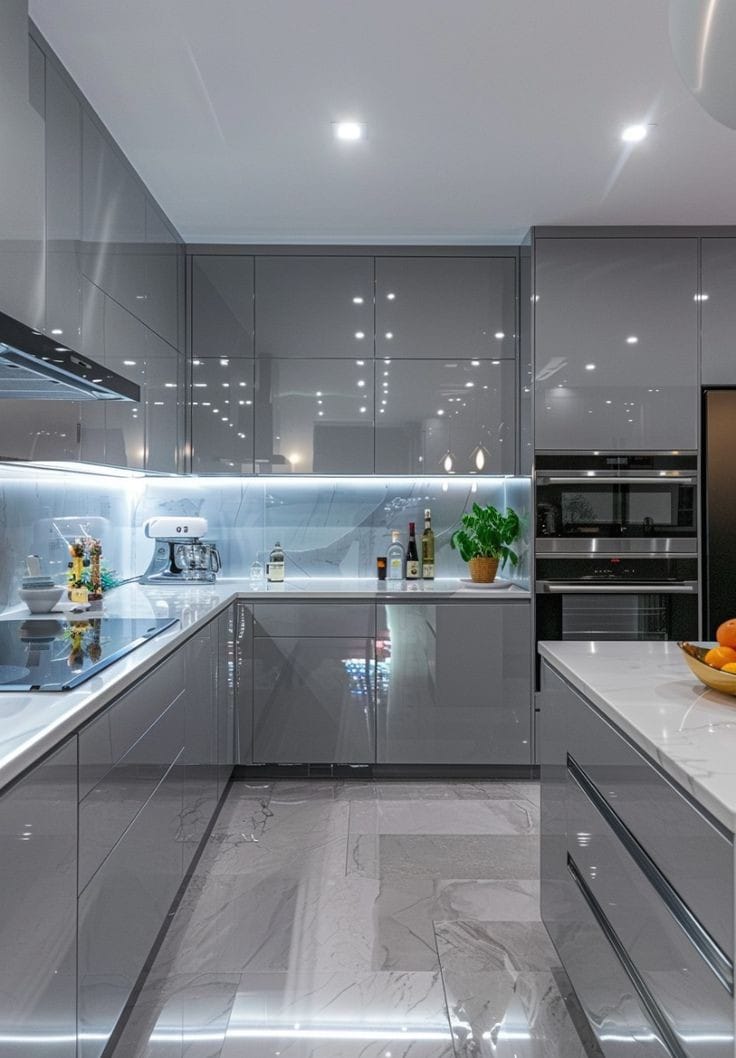Quartz Countertop Benefits and Maintenance Tips for Lasting Durability

Quartz countertops are a popular choice for kitchens and bathrooms due to their blend of durability, style, and low maintenance. They are made from one of the hardest minerals on earth, making them highly resistant to scratches, heat, and moisture. This makes quartz countertops a practical and long-lasting surface ideal for everyday use.
Beyond durability, quartz offers a wide range of design options. It can mimic natural stone or provide sleek, modern looks, fitting varied aesthetic preferences. Many brands also offer countertops that come pre-sealed and antimicrobial, adding convenience and hygiene.
Because they require little upkeep while delivering strong performance and style, quartz countertops have become a reliable choice for many homeowners. Understanding their benefits and characteristics helps in making an informed decision when selecting the right surface.
Understanding Quartz Countertops
Quartz countertops combine natural stone elements with engineered materials to provide durable and visually appealing surfaces. Their manufacturing process and composition differ significantly from natural stone, affecting maintenance and performance.
What Are Quartz Countertops
Quartz countertops are engineered stone surfaces made primarily from crushed natural quartz crystals combined with resins and pigments. Typically, they contain about 90-95% quartz, creating a hard, non-porous material. This composition makes quartz resistant to stains, scratches, and heat to some extent.
Because they are man-made, quartz countertop offers uniform patterns and colors unavailable in natural stone. They do not require sealing like granite or marble. Homeowners appreciate their balance of beauty, durability, and low-maintenance features.
Quartz vs Natural Stone
Unlike natural stone, which is quarried and cut into slabs, quartz countertops are manufactured. Natural stones like granite and marble are porous and may require regular sealing to prevent stains and damage.
Quartz’s non-porous surface inhibits bacteria growth and resists staining better than most natural stones. However, natural stone offers unique, unpredictable veining and variation, which some homeowners prefer for aesthetics.
Quartz is generally more consistent in appearance, while natural stone varies slab to slab. Both materials are durable, but quartz’s engineered properties favor ease of maintenance.
How Quartz Is Manufactured
Quartz countertops are created by mixing roughly 90-95% ground quartz crystals with about 5-10% polyester resin and pigments. This mixture is compressed and cured under extreme heat and pressure to form dense slabs.
The engineered process allows control over color, durability, and surface texture. Pigments provide a wide range of colors and patterns while resins bind the quartz crystals together, enhancing strength and flexibility.
After curing, the slabs are cut, finished, and polished to achieve a smooth, glossy surface. This manufacturing process results in a consistent, hard surface that withstands everyday kitchen and bathroom use.
Choosing and Caring for Quartz Countertops
Quartz countertops offer a combination of aesthetic appeal and practical benefits. Selecting the right design, understanding installation needs, and committing to proper care are essential to maximize their performance and appearance.
Design and Color Options
Quartz countertops come in a wide range of colors and patterns due to the engineered nature of the material. It can mimic natural stones like marble and granite or appear in solid, uniform tones.
Colors range from bright whites and grays to darker blacks and browns. Custom designs are also possible because of the variety of resin and quartz crystal mixes.
Textures vary as well. Some surfaces have a polished, glossy finish, while others offer a matte or honed look, allowing flexibility to match different kitchen styles.
Installation Considerations
Quartz countertops require professional installation due to their weight and the precision needed to fit them correctly. Improper handling can cause chips or cracks.
They must be supported properly as quartz is dense and heavy. Cabinets and support structures should be level and secure before installation.
Seams may be necessary, especially for longer counters. Skilled installers ensure seams are minimized and blend with the overall design.
Attention to manufacturer guidelines during installation can protect the warranty and avoid damage.
Cleaning and Maintenance
Quartz surfaces are non-porous, making them resistant to stains and easy to clean with mild soap and water. Harsh cleaners and abrasive pads should be avoided.
Spills, especially acidic substances like lemon juice or vinegar, should be wiped up quickly to prevent damage. Regular gentle cleaning preserves the surface’s shine.
Avoid placing hot pots directly on the quartz to prevent heat damage. Use trivets or hot pads instead.
For tough stains, using a non-abrasive cleaner designed for quartz is recommended. Regular sealing is unnecessary as quartz is engineered to be stain-resistant.
Longevity and Durability
Quartz countertops are highly durable, combining natural quartz crystals with resin to form a hard surface. They resist scratches, chips, and cracks better than many natural stones.
Their engineered composition provides consistent strength and color retention over time. They do not require periodic sealing like granite or marble.
Though quartz is resilient, extreme impacts or exposure to harsh chemicals can cause damage. Proper care extends lifespan significantly.
Most manufacturers offer warranties that cover defects and damages if care and maintenance guidelines are followed.
